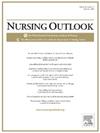Fear of lacking access to mobile devices (“nomophobia”): A preliminary study of prevalence, predictors, and relationship to perceived stress in nursing students
IF 3.7
2区 医学
Q1 NURSING
引用次数: 0
Abstract
Background
Nomophobia, the fear of losing smartphone access, appears to be increasing among nursing students globally. Early findings suggest that it leads to stress and anxiety and impacts student learning and academic performance.
Purpose
To assess nomophobia and perceived stress levels and the predictive factors in nursing students.
Methods
Cross-sectional surveys of 1030 nursing students at a university in Türkiye. The data were collected via paper questionnaires that included validated Turkish versions of the Nomophobia Questionnaire and the Perceived Stress Scale for Nursing Students.
Discussion
Among the 808 students who responded, 48% had moderate and 24.5% had severe nomophobia. Sex, income, academic success, daily smartphone use duration, social media use, listening to music, and perceived stress were significant predictors of nomophobia. Year within the nursing program, income, watching videos, surfing the internet, and nomophobia were significant predictors of perceived stress.
Conclusion
Understanding nomophobia and its relationship to perceived stress is potentially critical to a healthy nurse workforce.
对缺乏移动设备的恐惧(“无手机恐惧症”):护理专业学生中患病率、预测因素和感知压力关系的初步研究
无手机恐惧症,即对失去智能手机的恐惧,在全球护理专业的学生中似乎越来越多。早期的研究结果表明,它会导致压力和焦虑,影响学生的学习和学业表现。目的探讨护生无物恐惧症、感知压力水平及其预测因素。方法对浙江省某大学1030名护理专业学生进行横断面调查。数据是通过纸质问卷收集的,包括经过验证的土耳其版无恐惧症问卷和护理学生感知压力量表。在808名回应的学生中,48%的人有中度恐惧症,24.5%的人有重度恐惧症。性别、收入、学业成绩、每天使用智能手机的时间、社交媒体的使用、听音乐和感知压力是无手机恐惧症的重要预测因素。在护理项目的一年里,收入、看视频、上网和无恐惧症是感知压力的重要预测因素。结论了解无药恐惧症及其与感知压力的关系,对健康的护士队伍至关重要。
本文章由计算机程序翻译,如有差异,请以英文原文为准。
求助全文
约1分钟内获得全文
求助全文
来源期刊

Nursing Outlook
医学-护理
CiteScore
6.20
自引率
7.00%
发文量
109
审稿时长
25 days
期刊介绍:
Nursing Outlook, a bimonthly journal, provides innovative ideas for nursing leaders through peer-reviewed articles and timely reports. Each issue examines current issues and trends in nursing practice, education, and research, offering progressive solutions to the challenges facing the profession. Nursing Outlook is the official journal of the American Academy of Nursing and the Council for the Advancement of Nursing Science and supports their mission to serve the public and the nursing profession by advancing health policy and practice through the generation, synthesis, and dissemination of nursing knowledge. The journal is included in MEDLINE, CINAHL and the Journal Citation Reports published by Clarivate Analytics.
 求助内容:
求助内容: 应助结果提醒方式:
应助结果提醒方式:


